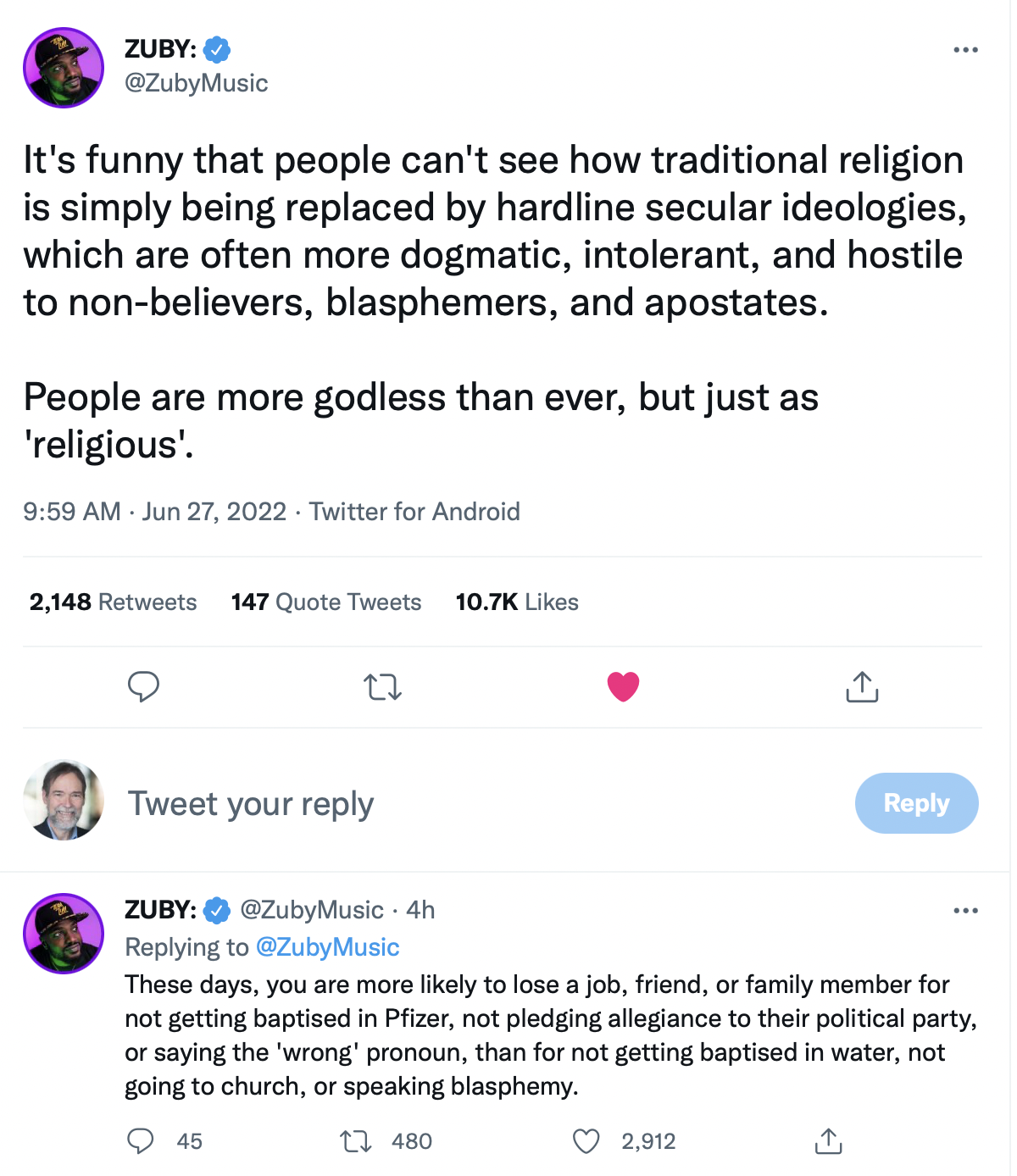I agree with Zuby. As I see it, traditional religions were serving a purpose that was not fully appreciated. I’m not claiming that the religious claims touted by most traditional religions were true. The truth of such claims is not where the source of the power of a religion. It is more accurate to state the the falsity of the dogmatic claims underlie the power of a religion. I explain this in a five-part series of articles I titled “Mending Fences.”
What happens when you take eliminate a popular institution? We’re finding out as it is occurring, as described by Chesterson’s Fence:
The principle that reforms should not be made until the reasoning behind the existing state of affairs is understood.
The most powerful social dynamic is our tendency to form tribes. Whenever people do this, they point to principles and beliefs, but there is no need for these principles or beliefs to be factually true to serve as the “reason” for the tribal affiliation. We often see this: the wackier the belief, the stronger the tribal ties, because proclaiming nonsensical things serves as a badge of tribal belonging.
John McWhorter has repeatedly made this point with regard to Wokeness. It is not like a religion. Rather, he says, it is a religion. “The reality is that what the Elect call problematic is what a Christian means by blasphemous.” The following excerpt is from the introduction of McWhorter’s book, Woke Racism (2021):
My main aims will be:
1. To argue that this new ideology is actually a religion in all but name, and that this explains why something so destructive and incoherent is so attractive to so many good people.
2. To explain why so many black people are attracted to a religion that treats us as simpletons.
3. To show that this religion is actively harmful to black people despite being intended as unprecedentedly “antiracist.”
4. To show that a pragmatic, effective, liberal, and even Democratic-friendly agenda for rescuing black America need not be founded on the tenets of this new religion.
5. To suggest ways to lessen the grip of this new religion on our public culture.


